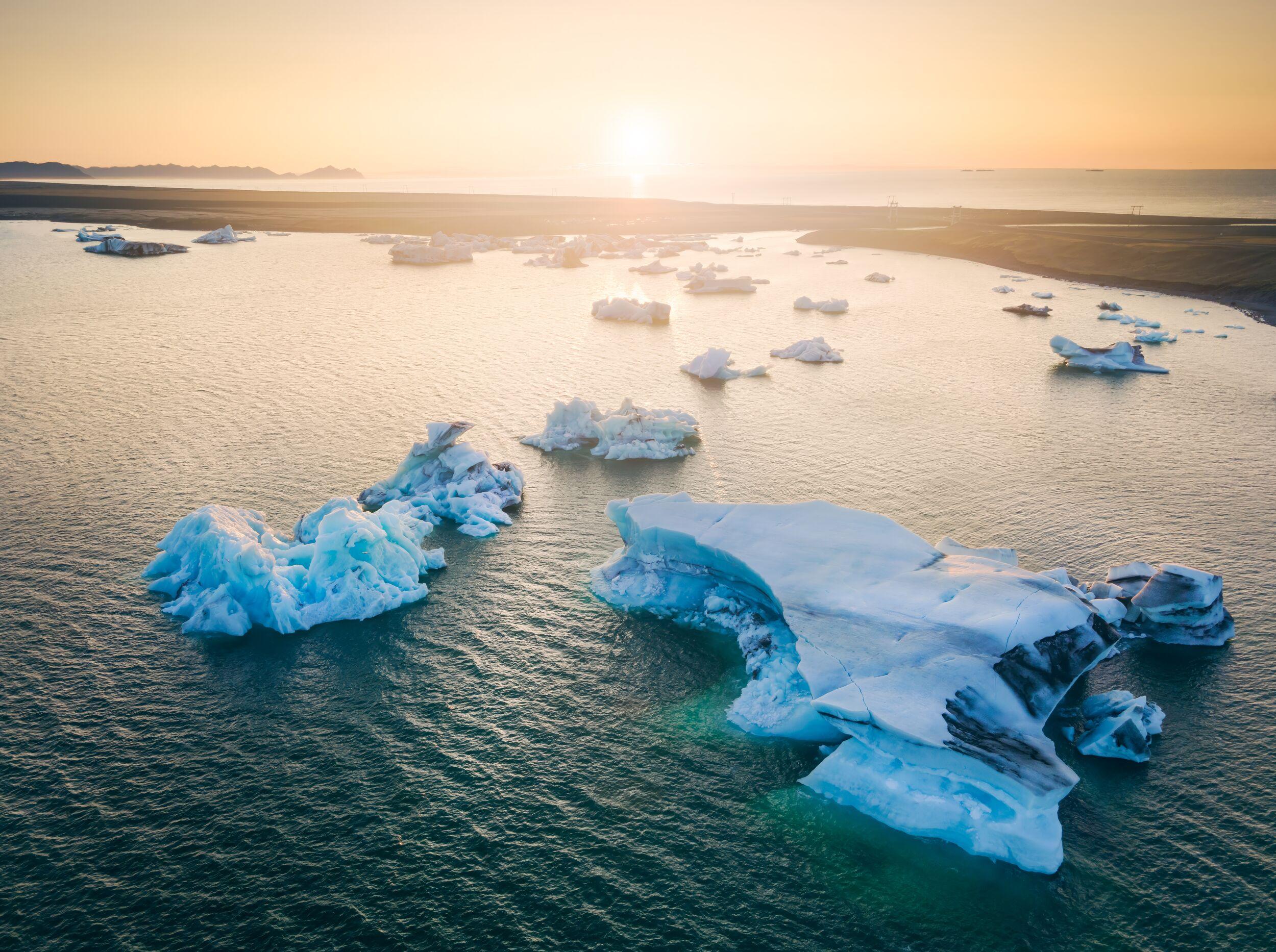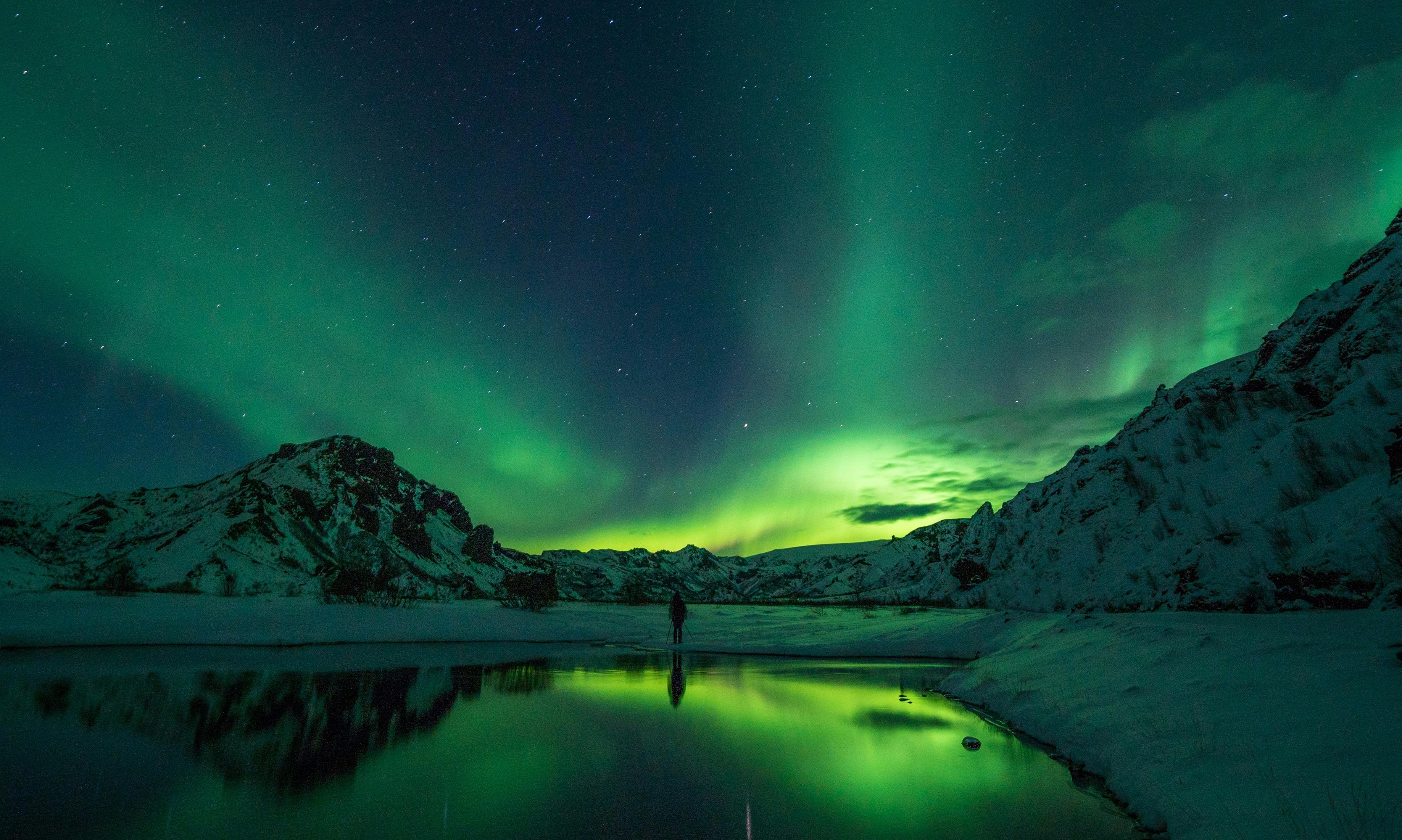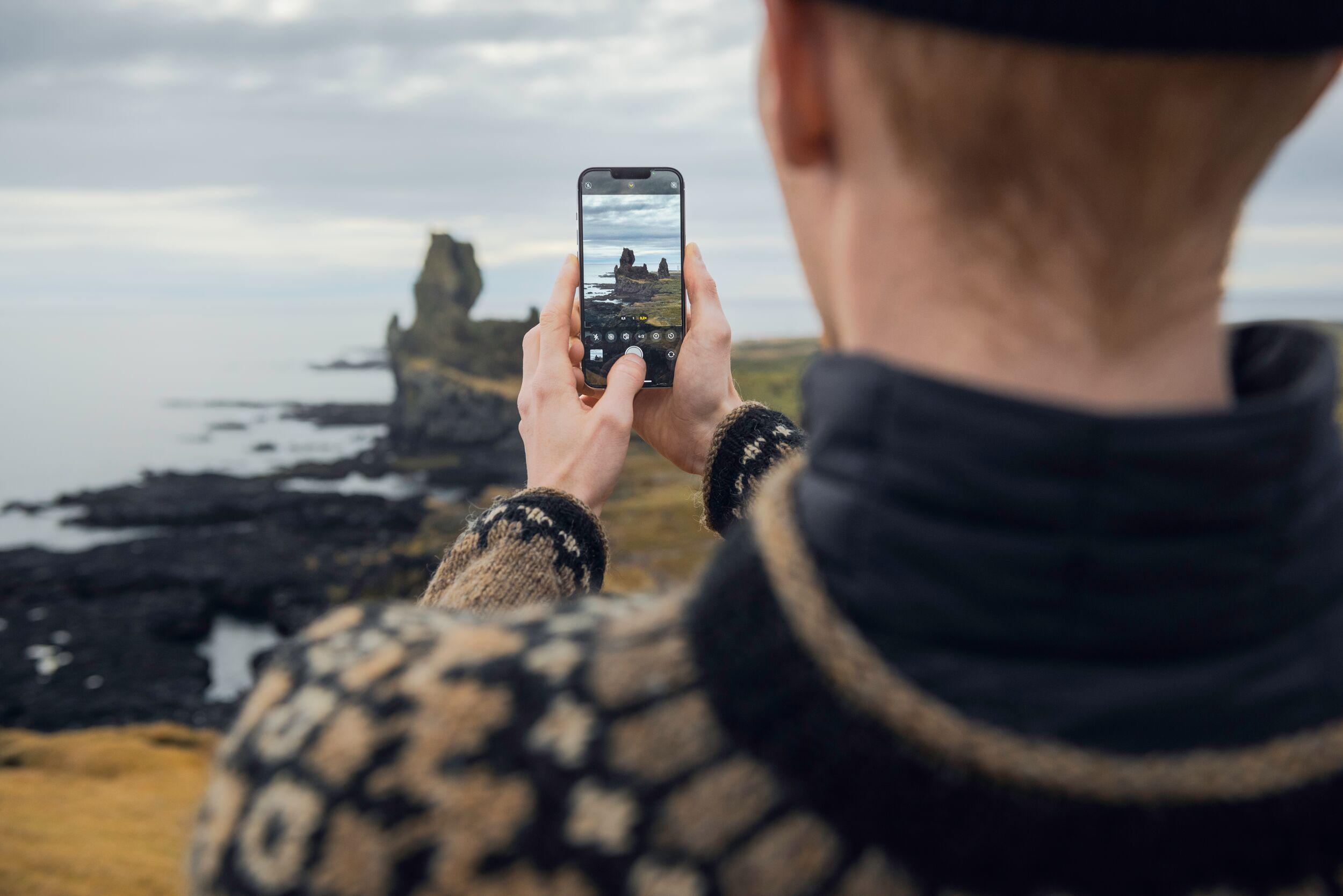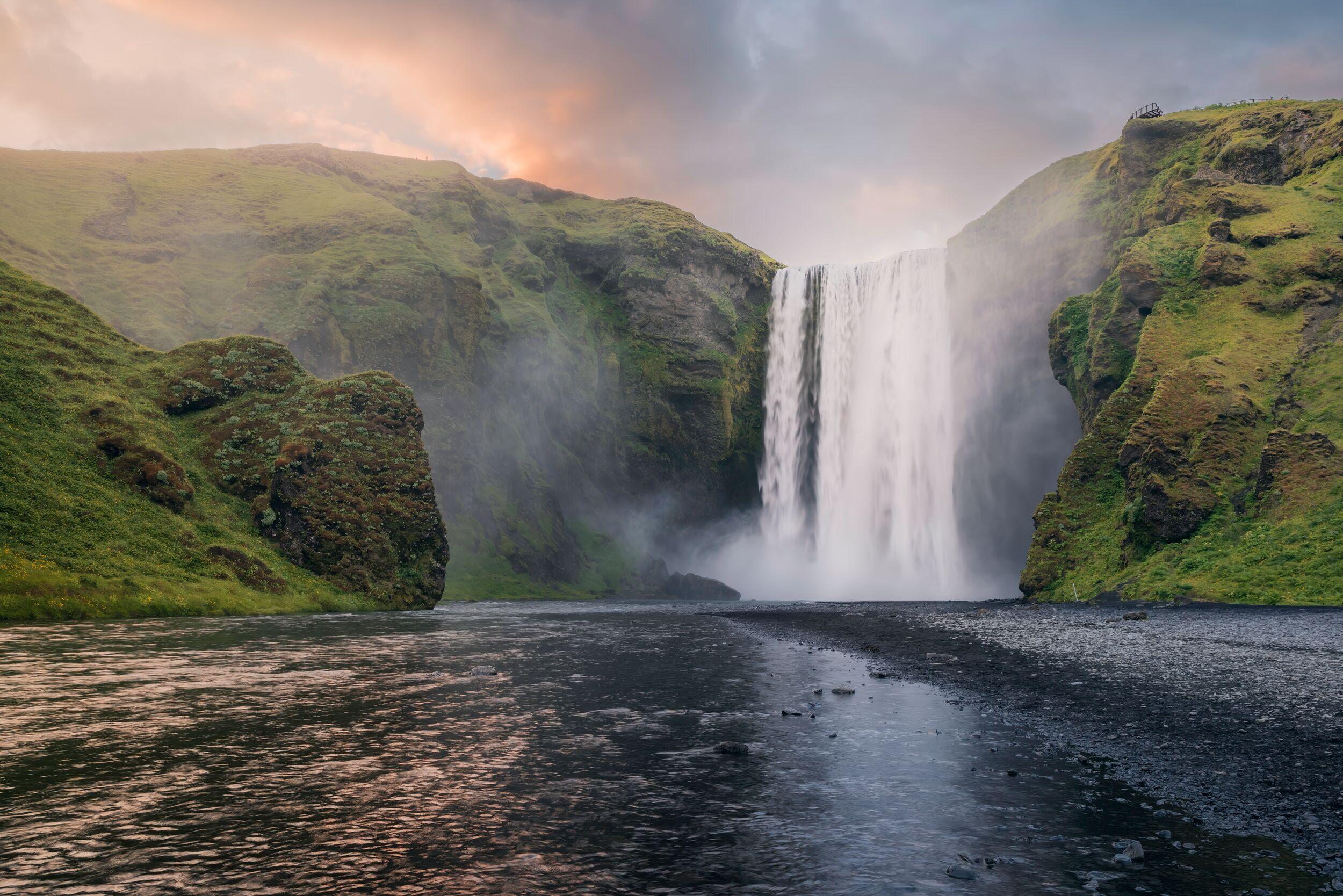The Ultimate Iceland Packing List
Everything You Need for Your Unforgettable Icelandic Adventure
Hold on to your excitement, for we've got you covered! Our comprehensive Iceland packing list guide is brimming with valuable insights and enchanting tales, prepping you for the whimsical wonders and challenges that Iceland might throw at you.
What to Pack for Iceland: The Essentials
First things first, consider the concept of layering your loyal companion. Multiple thin layers will wrap you in a cosy cocoon, ready to face any weather fluctuations, much better than one bulky layer. And when the sun decides to peek out, you can simply shed off a layer or two! Waterproof jackets and trousers are non-negotiable, and don't forget your hat, gloves, and sturdy waterproof shoes.
The base layer, directly against your skin, should be breathable and moisture-wicking. Despite comfort, cotton isn't recommended due to moisture absorption. Merino wool, a quick-drying insulator popular with hikers, or other synthetic outdoor wear are preferred.
The insulating mid-layer retains body heat. Wool and polar fleece are common choices, with the Icelandic wool lopapeysa sweater a popular local choice. In extreme cold, an additional insulating layer might be necessary. Quick-drying trousers or insulated shell pants are perfect.
Lastly, the outer layer protects against wind and rain. Softshell fabric is ideal, drying quickly and providing resistance against weather. If not waterproof, an additional rain jacket is necessary. Rain gear is advised year-round in Iceland due to the frequency of showers and potential waterfall spray.
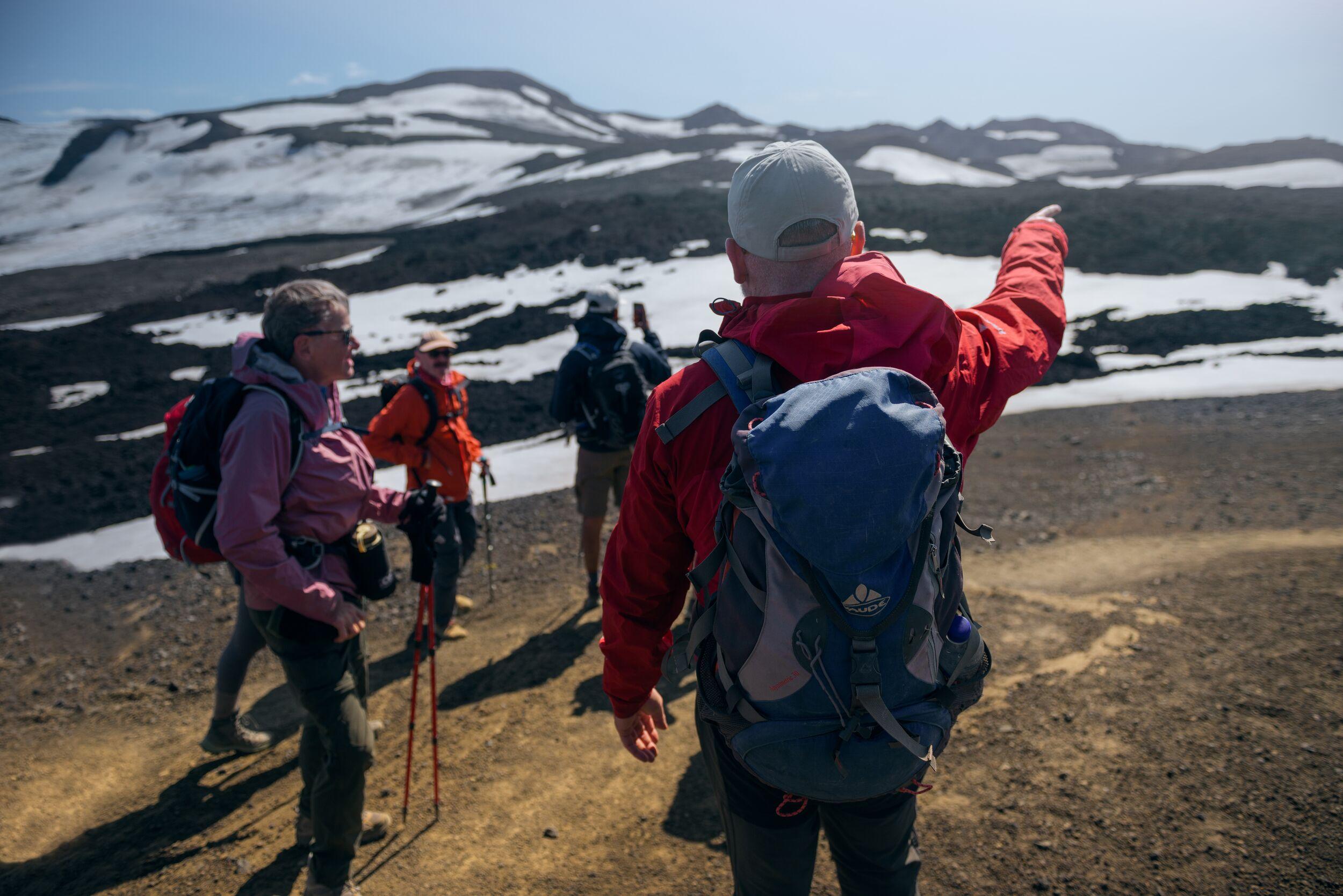
Packing for Travel Style, Comfort, and Function
Your travel style dictates your Iceland packing list. Hikers and outdoor enthusiasts need windproof, waterproof, and breathable gear to battle the elements and sustain activity levels.
For road-trippers, the priority is comfort and layer adjustability during stops. If your focus is city sightseeing, dress casually but with comfortable shoes and a rain jacket. For nature outings, sturdy boots and rainwear are crucial.
If your itinerary leans more towards urban exploration, a relaxed wardrobe will suffice. Though remember, comfort is key! Consider reliable footwear and perhaps a rain jacket for those surprise showers. Equally, if you're keen on exploring Mother Nature's wonders like cascading waterfalls and rugged beaches, don't forget your sturdy walking boots and rain gear.
When it comes to stepping into cosy bars, locals won't bat an eyelid at your outdoor attire. However, upscale dining spots and theatres appreciate a more refined look. A quick check on the dress codes will keep any embarrassment at bay.
Nightlife in Iceland is a fashionable affair. Embrace your inner style guru and channel glamorous, cool, and retro-inspired looks. European high-street favourites such as Zara, H&M, Lindex, and Reserved are go-to shopping destinations here. And don't forget local Nordic brands like Cintamani, 66North, and Farmer’s Market, perfect for indulging in retail therapy and spicing up your Icelandic wardrobe.
Items of Clothing to Avoid
Exploring natural attractions warrants particular care in your choice of attire. Denim items, such as jeans, and cotton clothing are less than ideal as they absorb and retain water, taking an age to dry and potentially leaving you shivering in dampness all day.
Plastic raincoats, although seemingly practical, are not your friend in this Nordic clime. They are not only tough to adjust, but also poor at shielding you from the rain and wind. Plus, their lack of breathability can trap moisture, leading to a swift transition from dry to damp, and they often lack in design sensibility.
Clothing that's overly heavy can feel burdensome, hindering your comfort and mobility. Instead, aim for lightweight, protective gear for a more pleasant experience. It's fine to pack spare layers, but don't pile on weighty attire all at once. The key is moderation!
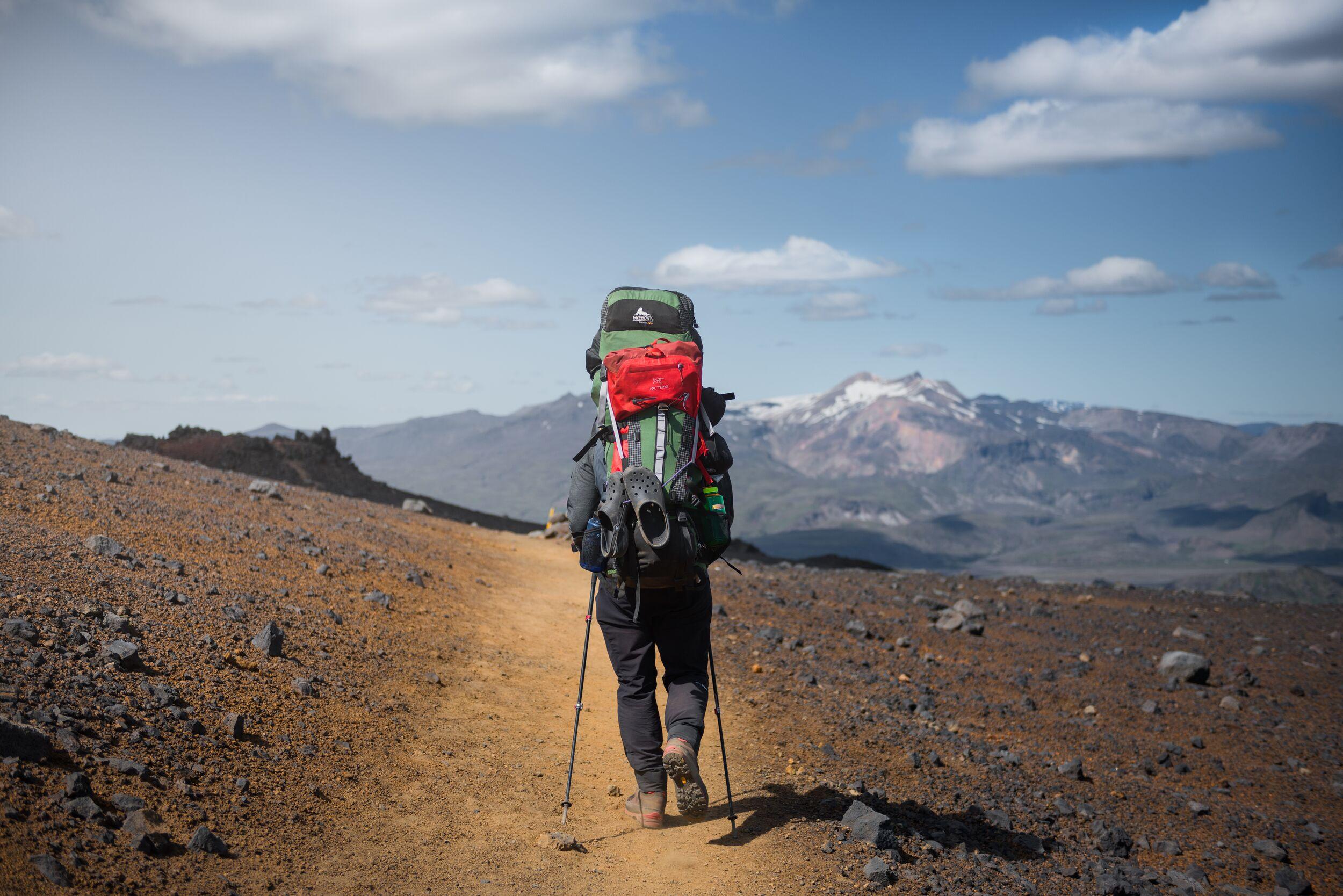
The Adventure Gear and Essential Extras
Venturing into Iceland is like stepping into a breathtaking postcard. The high volcanic peaks, the grizzled glaciers, the dramatic coastlines, and majestic waterfalls are a photographer's paradise. Whether you're capturing the northern lights with a professional camera or using your phone, ensure your camera, memory cards, and chargers are ready to go.
And remember, if you're arriving from the UK, you'll need an adapter "C" or "F" to keep your devices charged and ready.
Here's a selection of additional accessories that can significantly enhance your comfort and convenience during your Icelandic adventure.
Handy Backpack
A compact backpack can be your best ally, providing an easy and secure means to tote your daily necessities, like wallet, keys, camera, drink, and collapsible rain jacket. It gives you the freedom to explore hands-free, minimising the risk of losing items, and allowing for easy access.
Skin and Eye Protection
Believe it or not, you'll need sun protection in Iceland, even in winter! Sunburn can be an unwanted souvenir from March to September, if you're not careful, especially during lengthy outdoor escapades. Make sure you pack or purchase a robust sunscreen with a minimum SPF of 30. A cap or sunhat can offer added safeguard for your face. You may not need it in winter, but it is absolutely crucial in summer.
Sunglasses aren't just for looking cool; in Iceland, they are a practical accessory all year round. They can offer added comfort during sunny summer sightseeing, improve visibility when driving during low-evening sun, and reduce winter sun's glare off the snow.
Sleep Aid
A sleeping mask can be a valuable travel companion, whether on flights or in hotel rooms lacking blackout blinds. The extended daylight of Iceland's summer may challenge your regular sleep pattern. From late April, early sunrises and late sunsets can shift your internal body clock. By late May, the Midnight Sun reigns, offering non-stop daylight until late August.
Season-Specific Essentials for Your Iceland Adventure
We've outlined the fundamentals for packing for your Icelandic journey, but it's essential to remember that the weather here can vary greatly with the changing seasons.
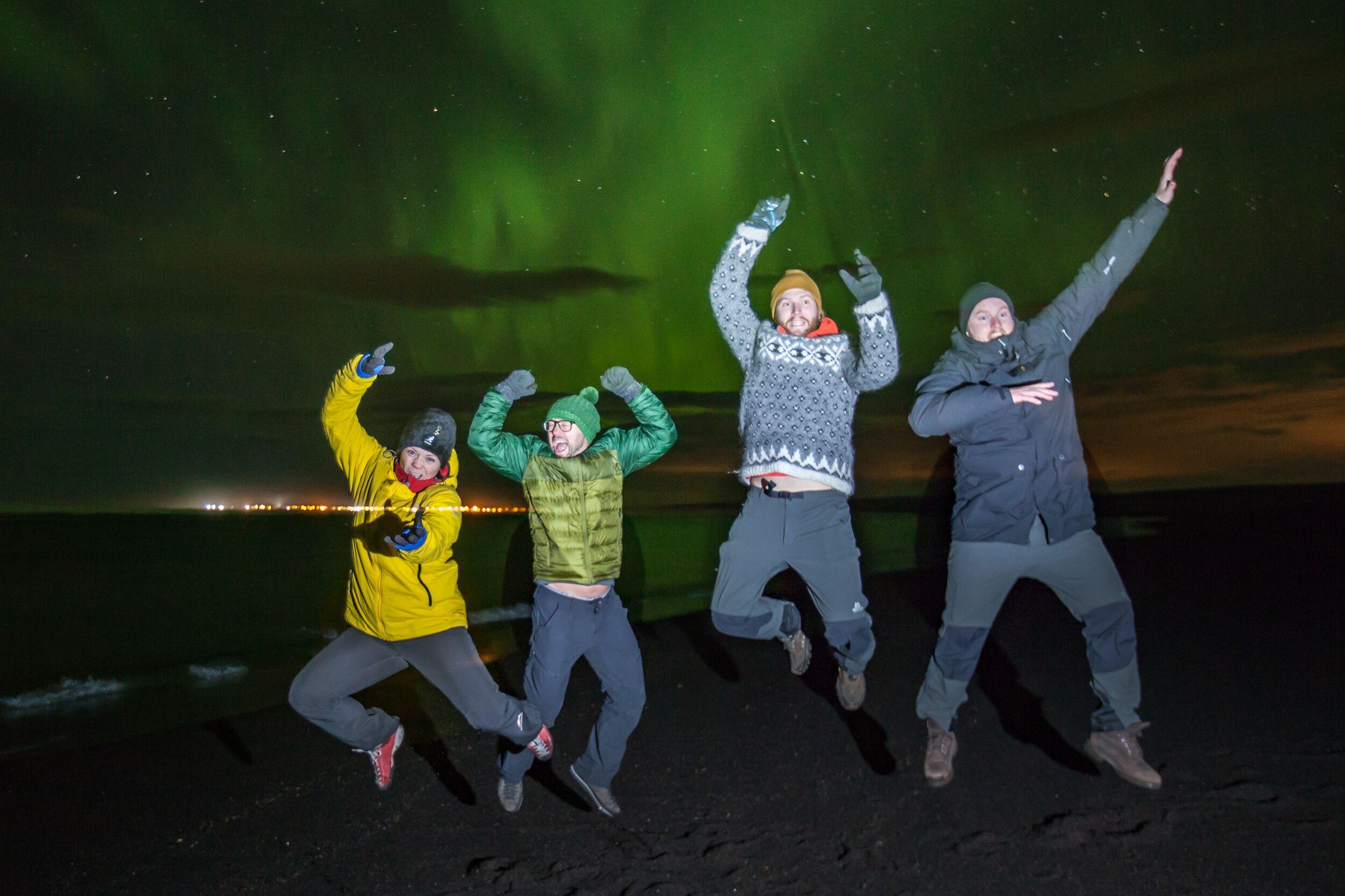
How to Dress in Spring
As spring unfolds from April to May in Iceland, the lingering chill of winter begins to recede, and daylight generously extends its stay. This season, however, is akin to a weather roulette wheel, oscillating between fresh snowfall and brilliant sunshine, often within the same day!
Prepare yourself for a wide spectrum of temperatures, from below freezing to as high as the mid-teens Celsius (32 to 60°F). The key to mastering this weather conundrum lies in the art of layering!
Indeed, donning a winter parka in these months isn't a rare sight, as wintry weather continues to assert its presence in spring. It is not surprising to find oneself amidst a sudden snow flurry even as the season unfolds. Yet, as unpredictable as the chill descends, the temperatures can sometimes climb to a more welcoming 10 degrees Celsius (50°F), breathing an early hint of summer into the air.
Thus, equipping yourself with a versatile wardrobe becomes paramount. A collection of layers that can be adjusted to the fluctuating conditions is your best bet. Start with thermal undergarments, add warm mid-layers like fleece or wool sweaters, and top it off with a waterproof, wind-resistant parka. Such a setup ensures you're always ready to peel off or pile on as the day's conditions dictate. Iceland's spring season is a vibrant blend of winter's remnants and summer's promise, and with the right attire, you can comfortably embrace all its beautiful complexities.
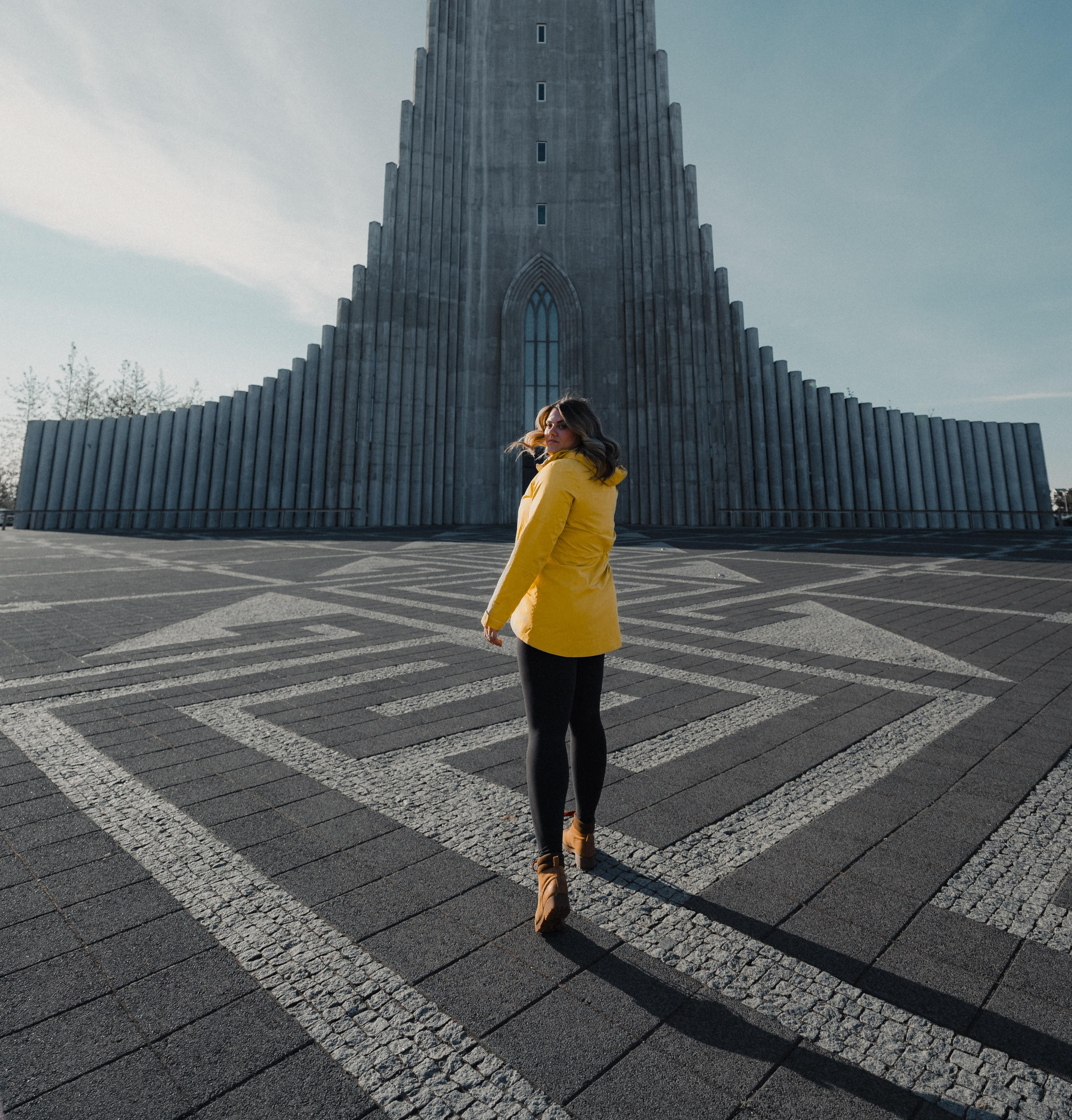
How to Dress in Summer
Summer in Iceland, spanning from June to August, welcomes a warmer ambiance and lingering twilight hours, creating an ethereal, otherworldly aura. Though encountering snow is unlikely, the Highlands can get notably cooler then the lowlands.
On occasion, the summer days can escalate in warmth with temperatures reaching up to 20 degrees Celsius (68°F). Coupled with the shining sun and wind chill, the perceived temperature can often feel even higher. Thus, packing a few light materials such as T-shirts might prove beneficial. However, don't overdo it, as these warm spells are not the norm.
Interestingly, summer in Iceland can still surprise you with low temperatures dipping down to a chilly 5-10 degrees Celsius (40-50°F), and even lower in the Highlands region.However, this doesn’t mean you need to load your suitcase with heavy winter gear. Instead, focus on items like high-quality merino long-sleeve shirts and thermal fleece sweaters to keep you warm. A hat will also provide necessary warmth on those unexpectedly cool days.
Though an insulated parka isn't needed in the summer, don't underestimate the importance of a wind-and waterproof outer layer. This crucial piece of clothing will protect you from Iceland's volatile weather, and it allows the option of adding one or two layers of insulation underneath should the chill become more pronounced. Iceland's summer may be a little different
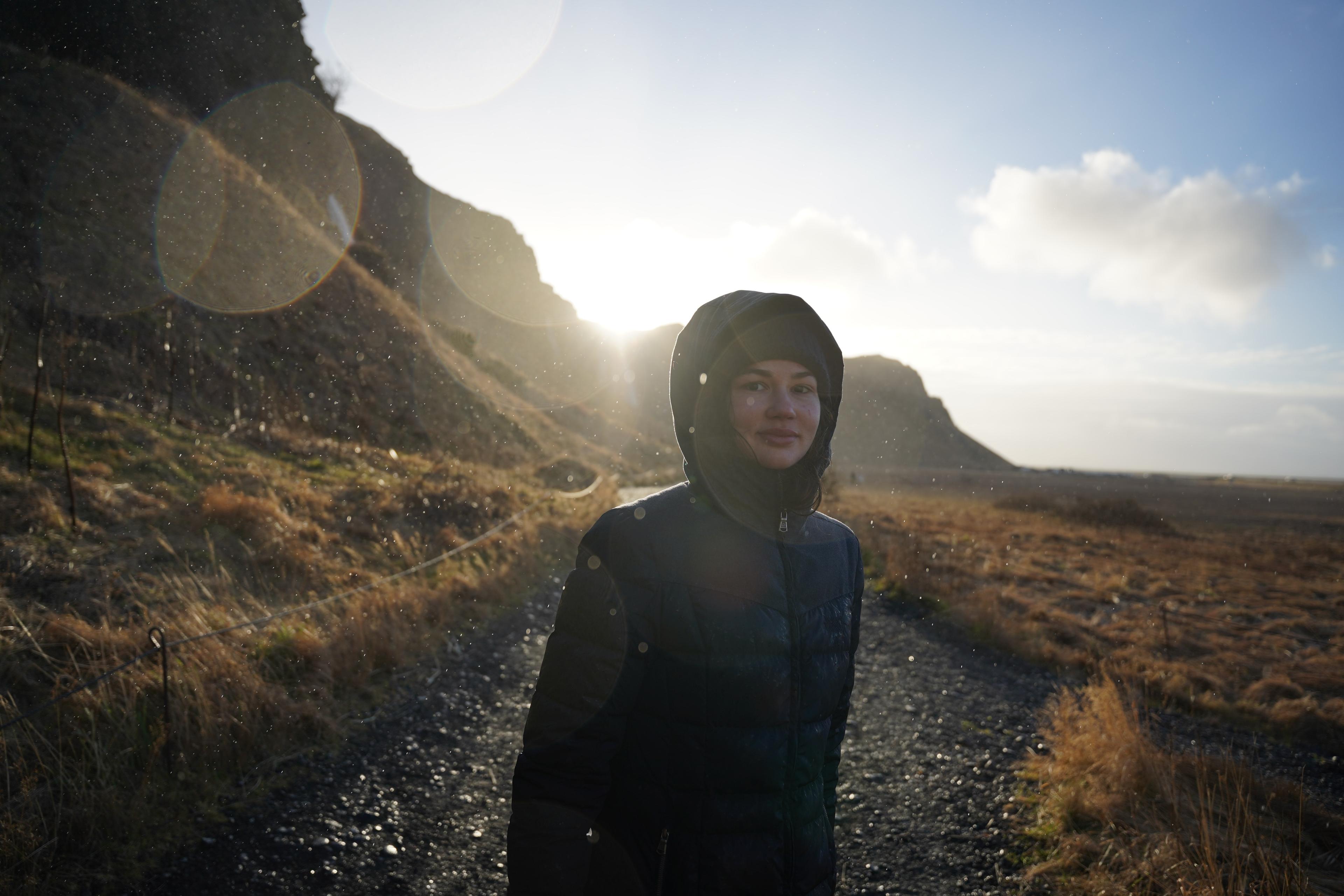
How to Dress in Autumn
Autumn, spanning from September to November, is just as unpredictable as spring in terms of weather and temperature fluctuations. You'll need a versatile wardrobe ready for anything!
Layering remains the golden rule as you dress for Iceland's autumn, ready to navigate the varying hues of its climate. The dazzling brilliance of a sunny day can swiftly surrender to an overcast sky, accompanied by a noticeable drop in temperature. The presence of both pleasant and harsh weather days in your itinerary should be assumed and prepared for, making a versatile array of attire indispensable.
As the autumn chill deepens, particularly during evenings, a warm parka can be your most trusted ally. This is particularly true for those adventurous souls who choose to brave the crisp air in search of the elusive Northern Lights, a celestial spectacle that is worth every shiver.
As you stand beneath the star-studded sky, patience is key and so is warmth. For these awe-filled but motionless hours, warm footwear becomes essential. A pair of good boots coupled with thermal socks can make the difference between an uncomfortable wait and an exhilarating experience.
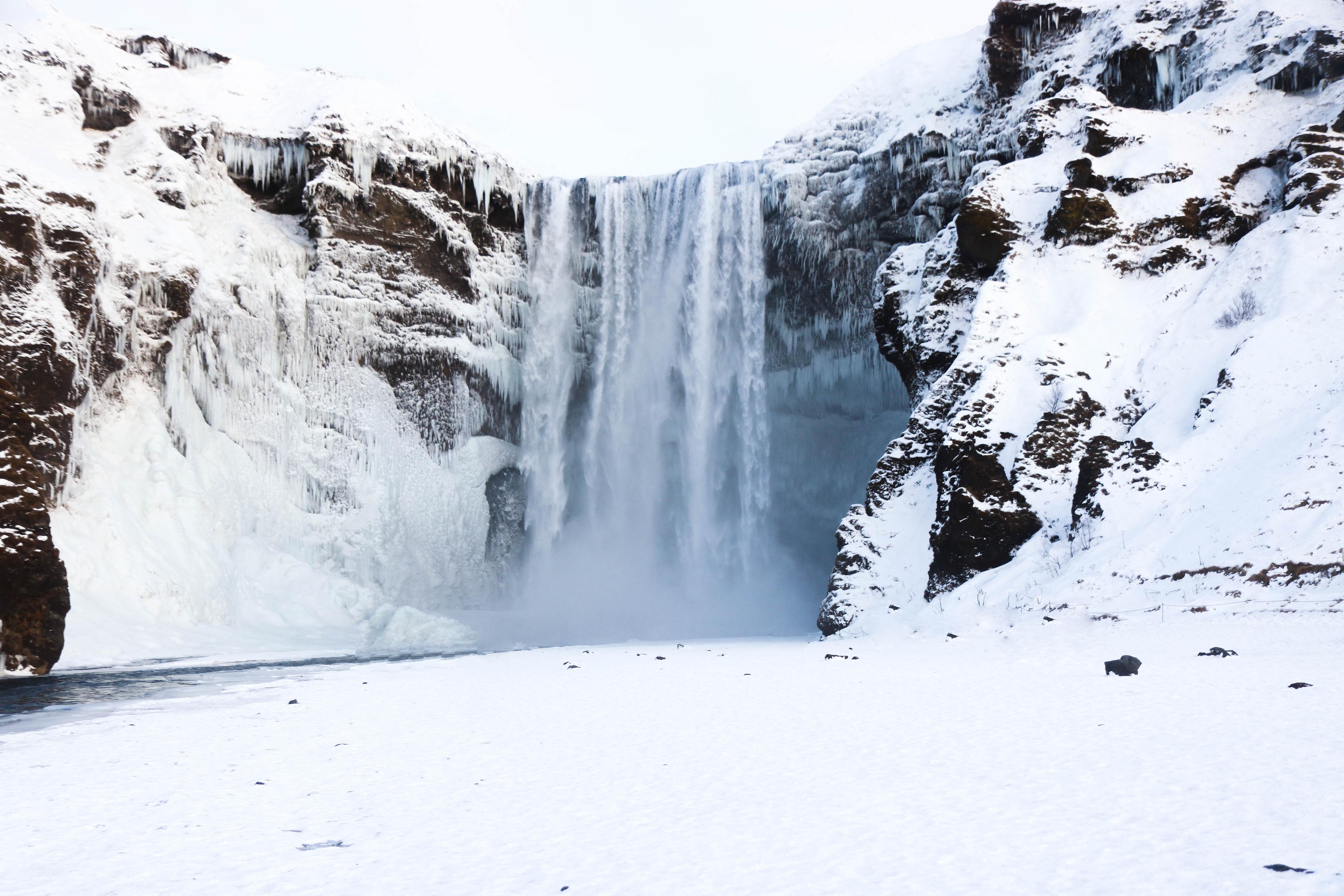
How to Dress in Winter
Winter in Iceland, running from late November through March, morphs the landscape into a stunning spectacle of glistening snow and glittering ice. Immersing yourself in this wonderland necessitates suitable attire.
Essential items include thermal layers, snug clothing, gloves, a cozy hat, and robust footwear specifically designed for frosty terrain. While temperatures seldom rise above freezing, it is worth noting that they can occasionally plummet as low as minus 20 degrees Celsius (-4°F)
These potentially extreme conditions call for the prudent use of reusable hand warmers, providing an additional source of heat during your wintry explorations. Complement these with windproof hats and gloves to fortify your defense against biting winds, ensuring comfort even in the heart of winter. A comfortable, high-quality winter parka is an indispensable ally, offering a warm embrace amidst the frosty surroundings.
When crafting your winter wardrobe, it's crucial to remember that thickness is not the sole indicator of warmth. Avoid relying on excessively bulky items that can hinder movement and weigh you down. Instead, prioritize lightweight garments made from premium materials known for their insulation properties. Think wool, fleece, or specially designed synthetic materials. These will keep you warm without impeding your ability to freely engage with the environment.
Buying Clothes and Outdoor Equipment in Iceland
If you find yourself missing some essential items for your Icelandic trip, Reykjavik provides ample shopping opportunities. The city hosts two shopping centers: Kringlan and Smáralind, both offering a wide array of shops catering to different needs. You can also find a SportsDirect and a Costco in the outskirts of the city.
When searching specifically for outdoor and hiking equipment, two stores in Reykjavik particularly stand out: Útilíf and Fjallakoffin. Both shops carry international brand selections, providing plenty of choices to gear up for your Icelandic adventure.
Furthermore, you may want to explore local Icelandic brands renowned for their quality and resilience against the Icelandic weather, such as 66North, Cintamani and Zo-on. These brands offer items that are specifically designed to withstand the country's unique climate, making them ideal choices for your outdoor equipment.
But if you're exploring outside Reykjavik and find yourself in need of essential clothing items or gear, do not fret. Numerous larger gas stations scattered across the country house IceWear shops, which offer a selection of essential clothing items and gear for your journey. Whether you're in the bustling heart of Reykjavik or traversing the rugged Icelandic landscapes, you'll find opportunities to stock up on the necessities for your trip.
One beneficial aspect to note is that all visitors in Iceland qualify for tax-free shopping. If you make a single purchase exceeding 6,000 Icelandic krona (approximately 40 euro), request a tax-free form from the store. When departing Iceland via the airport, you can claim a refund for the tax paid on your purchase. Keep this in mind when acquiring souvenirs or outdoor gear!
Iceland Packing Checklist
Winter: October–April
For Road Trips and Short Hikes
- Long-sleeved undergarments
- A sweater (wool or fleece)
- A down jacket or vest
- A warm winter parka (waterproof and windproof)
- Waterproof boots
- Warm wool socks
- Snow spikes/ice grippers for your boots
- Insulated, water-repellent pants
- A warm, windproof hat, gloves, and scarf
- Sunglasses
- Pajamas / nightwear
For City Life, Optionally
- A set of city wear and footwear
- A set of fancy wear
- For Enjoying Life
- A bathing suit and a towel
Practical Items for Winter
- Hand cream and lip balm
- A reusable water bottle
- Reusable pocket warmers
Summer: May–September
For Road Trips and Short Hikes
- Long-sleeved undergarments
- A t-shirt
- A sweater (wool or fleece)
- A softshell jacket
- Waterproof boots
- Softshell pants
- Raincoat (and rain pants for longer walks)
- A thin beanie, gloves, and a buff
- Sunglasses
- Pajamas / nightwear
For City Life, Optionally
- A set of city wear and footwear
- A set of fancy wear
- For Enjoying Life
- A bathing suit and a towel
Practical Items for Summer
- A mini bottle of sunscreen (30+)
- Hand cream and lip balm
- A reusable water bottle
Additional Accessories
- A Small Backpack
- Sunscreen
- Sunglasses
- Sleeping Mask
What You Won’t Need in Iceland
An Umbrella
While you might think an umbrella would be great for rainy days in Iceland, it’s not! You’ll probably notice that locals don’t use umbrellas; it’s often simply too windy for an umbrella to be effective. Save the space in your luggage and bring a high-quality raincoat instead of an umbrella.
Bug Repellent
You’ll almost certainly be delighted to hear that Iceland doesn’t have any mosquitoes! There’s such a low chance of being bitten by bugs that you don’t need to worry about packing insect repellents.
Explore Iceland - Whatever the Weather!
There's nothing like the thrill of exploring Iceland's south coast, discovering its picturesque villages, feasting your eyes on the beauty of Jökulsárlón or ziplining over Vík. And while your adventures unfurl, make sure to sample the culinary delights that are quintessentially Icelandic.
Your "What to Pack for Iceland" guide is all set! Remember, in Iceland, it's better to be over-prepared than under. Now, as you pack your bags with these essentials, brace yourself for the Icelandic magic that awaits you! As you set foot on this enchanting land, let the Fire and Ice take you on a journey you’ll never forget.
Related Articles
See all articlesRecommended tours
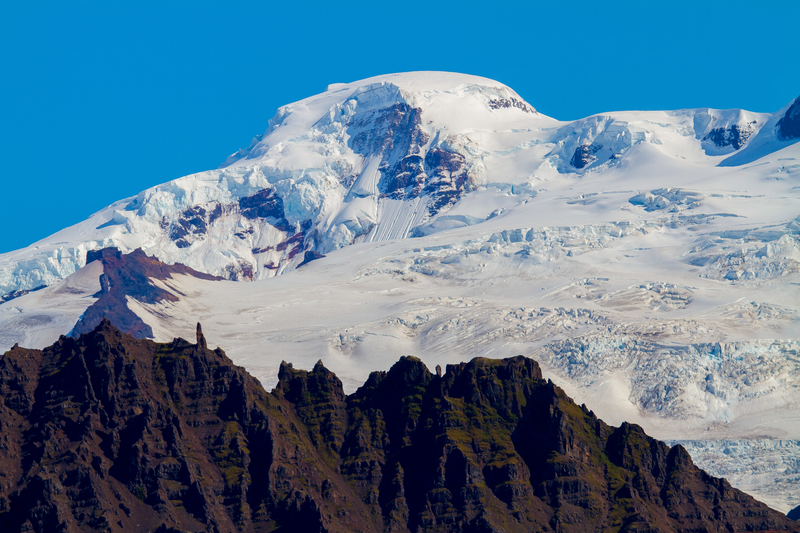
Hvannadalshnúkur - Iceland's highest summit
Ascending the highest peak in Iceland, Hvannadalshnúkur (2110 m / 6900 ft) is a bucket-list worth climb to check off your list! The mountain is located on the northwestern rim of the Öræfajökull volcano and promises an unforgettable hike with breathtaking panoramic views. This is not a beginners’ hike; be prepared for a challenging climb befitting those with ample climbing experience and in fantastic physical shape. No special technical skills are required, but we recommend packing the items on our equipment list (see below). The climb will be mentally and physically gruelling, but it is worth it.
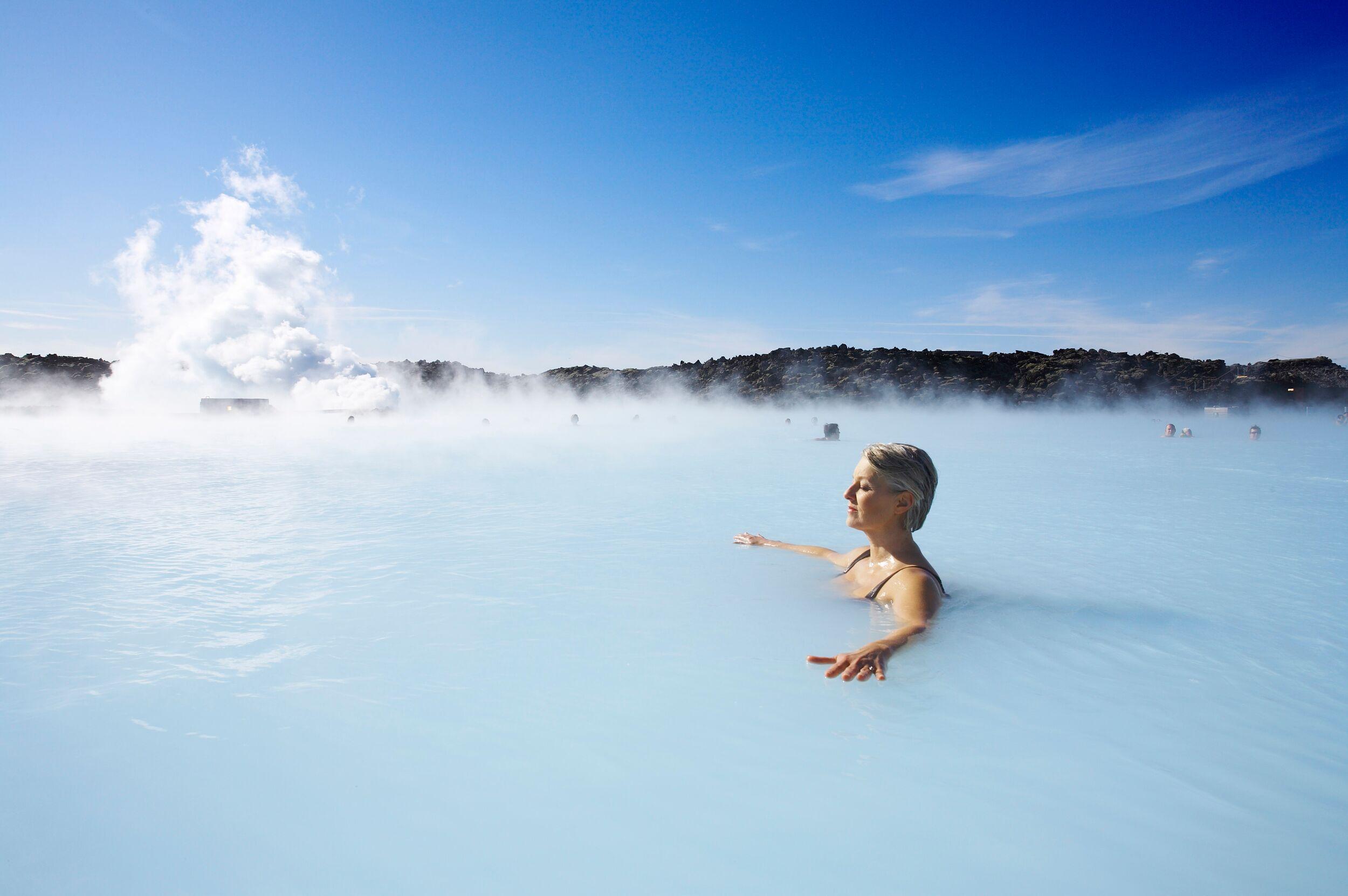
- Best seller
- Popular
Blue Lagoon & Northern Lights
Enjoy a perfect winter day in Iceland! Experience the best of Iceland with this package of two of the island’s most popular tours in one day! Soak in the milky blue healing water of the Blue Lagoon, which is one of Iceland's most famous tourist attractions and is considered by many to be a once-in-a-lifetime experience and an unmissable part of a visit to Iceland. After your return to Reykjavík, a guide will lead you on a search for the elusive northern lights! Watching the lights dance and flicker in the sky, changing shape and colour, is incredible. Prepare to be dazzled!
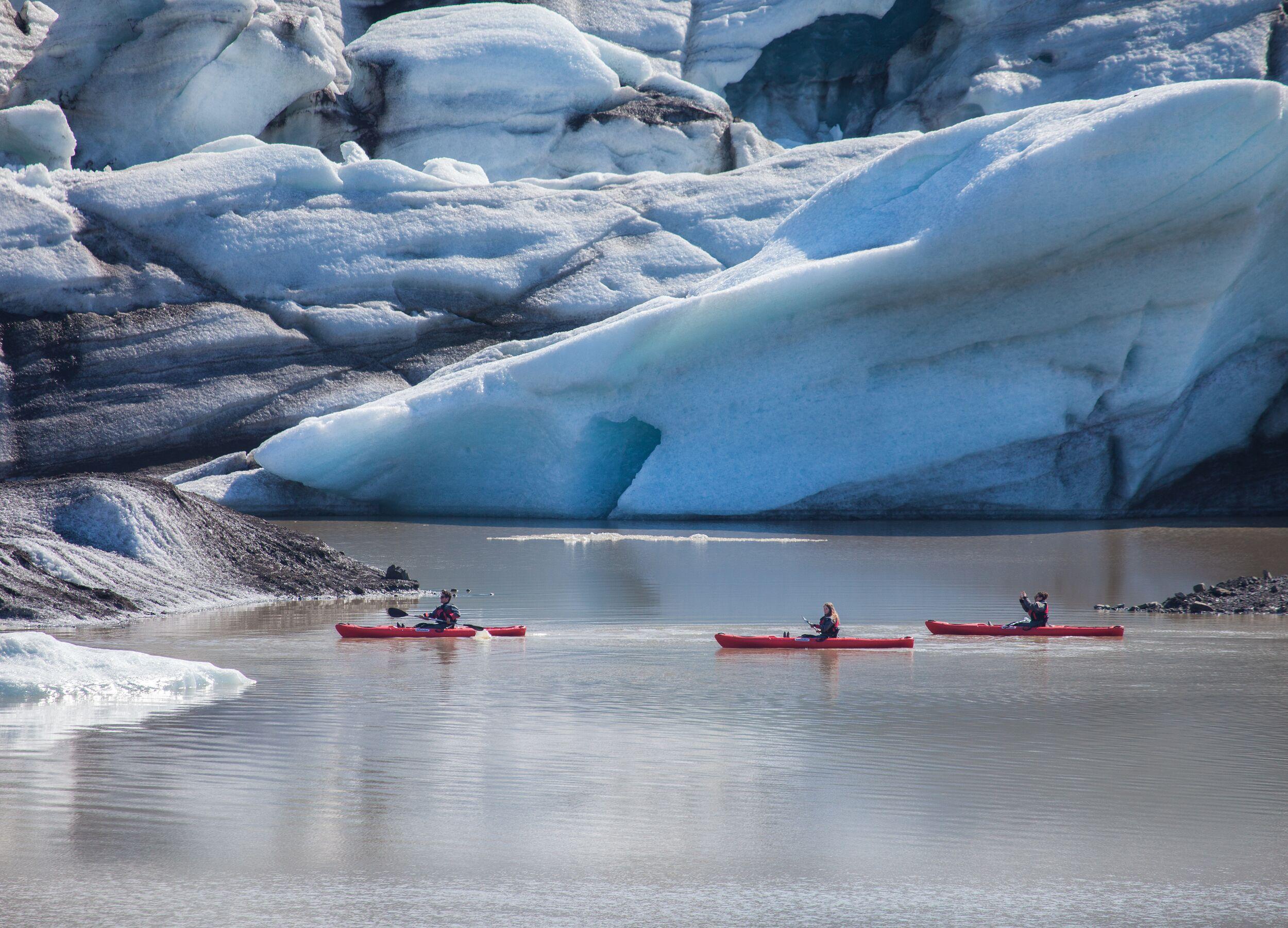
Kayaking by the Glacier
With its enormous white and blue icebergs breaking off from Sólheimajökull Glacier, join this leisurely kayak tour where you will sail along the Sólheimajökull Glacier Lagoon. This is an experience you absolutely cannot miss out on. Bask in the beautiful nature surrounding you as your expert guide leads you around this gorgeous outlet glacier.

Easy Glacier Discovery - 2.5-hour Sólheimajökull Glacier Hike
If you've ever wanted to walk on a glacier but worried it might be too challenging, don’t stress! This 2.5-hour hike on Sólheimajökull glacier is perfect for anyone with a basic level of fitness who wants to soak in Iceland’s icy beauty at an easygoing, enjoyable pace.
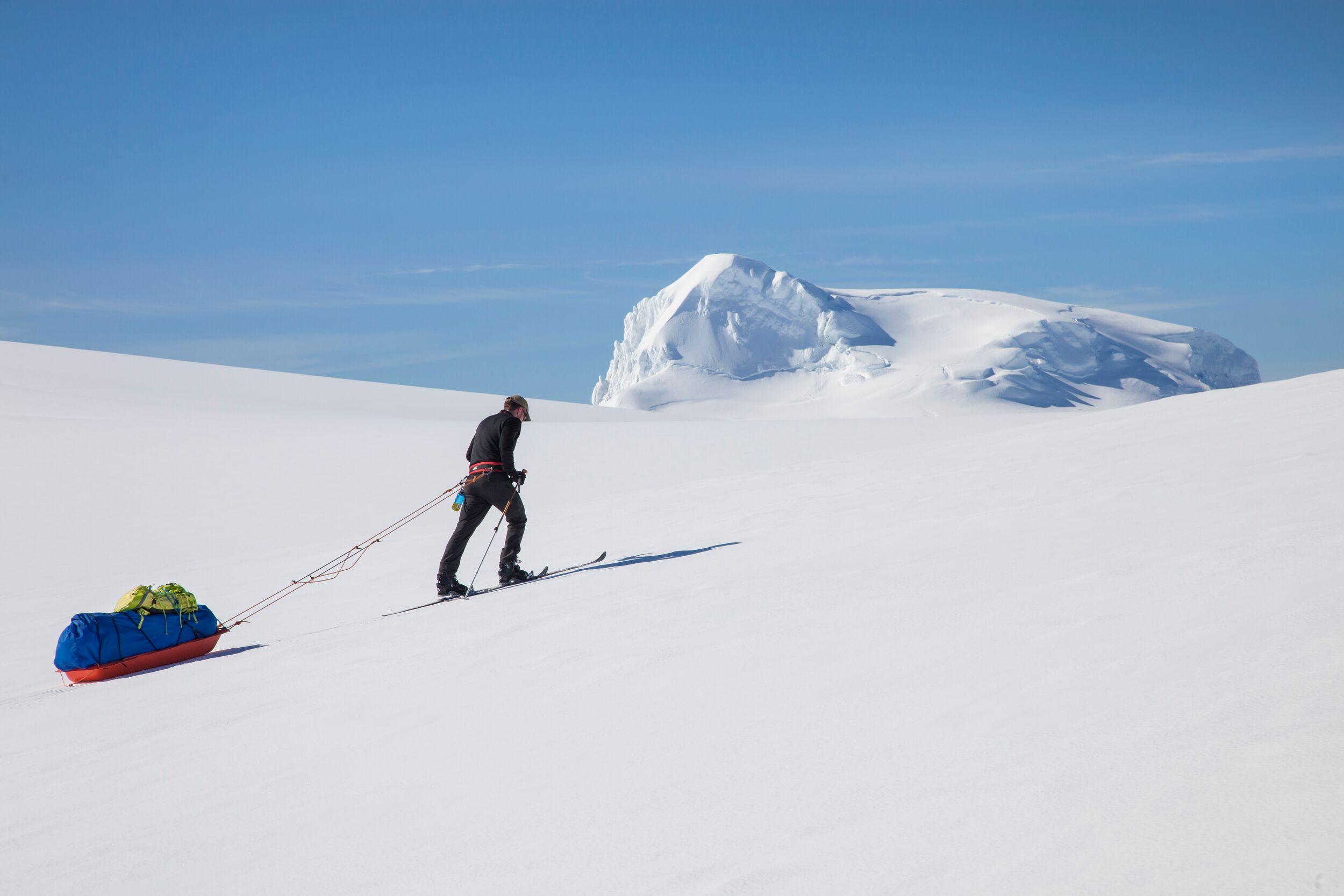
Vatnajökull Glacier Expedition
Cross the largest glacier in Europe during this perfect combination of adventure, stunning nature and physical challenge. This is a dream tour for outdoor enthusiasts! Crossing the mighty Vatnajökull ice cap should be on the list for every ambitious adventurer.
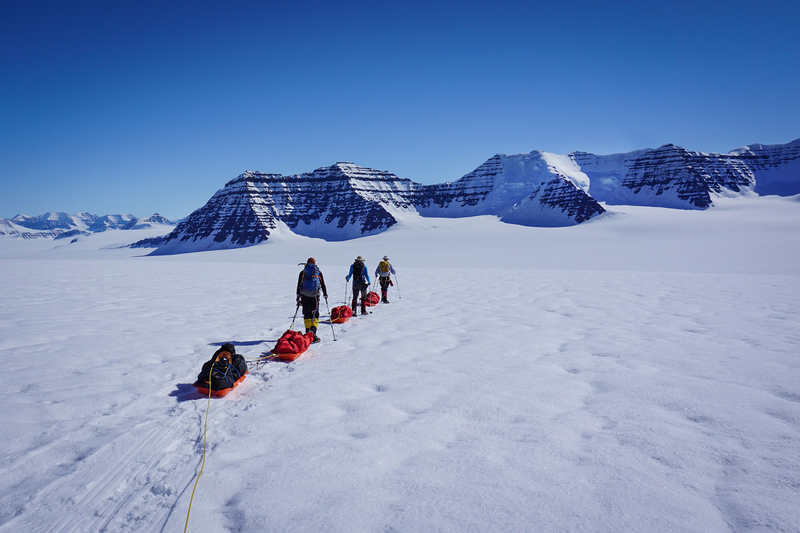
Mt Gunnbjörn, the Highest Peak in Greenland
Are you dreaming of an Arctic adventure of a lifetime? This 5-day tour has you scaling the highest peak of the Arctic (3694 m/12120 ft). Mt. Gunnbjörn has been called the 8th continental peak due to its massive size, and it beckons climbers from around the world. On the east coast, where towering mountains rise from the Greenland icecap, the conditions are pristine and similar to those in Antarctica. There’s nothing quite like challenging yourself to climb in one of the most isolated areas of the north, with the fresh Arctic air and stark white snow. An experienced and qualified guide will lead the group, keeping participants safe and informed. This is not a trek for a beginner as the hike is considered strenuous, and participants should have mountain climbing experience and be prepared to camp for four nights. Mt. Gunnbjörn is easily accessible on a ski plane from Iceland. Once in the Watkins Mountains, we set up a comfortable base camp at the foot of the mountain. To make the summit day more manageable, we establish one camp on the way to the summit. The climb can be done on snowshoes, with the last part done on crampons.


